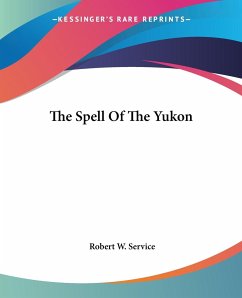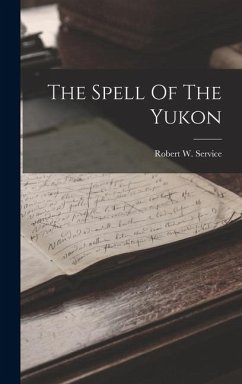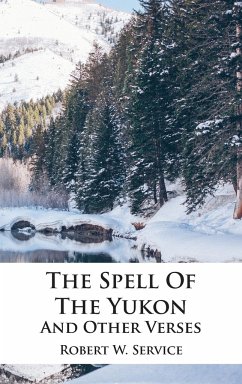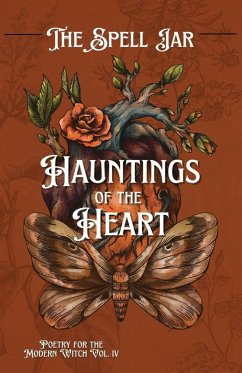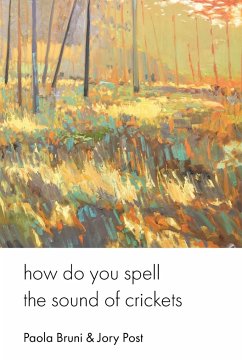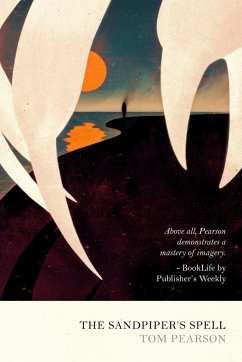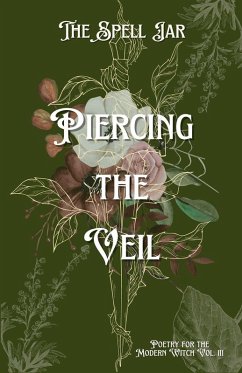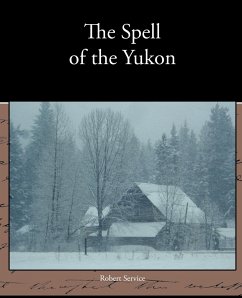
The Spell of the Yukon
Versandkostenfrei!
Versandfertig in 1-2 Wochen
13,99 €
inkl. MwSt.

PAYBACK Punkte
7 °P sammeln!
Robert W. Service (1874-1958) was a Canadian poet best known for his poems about the Canadian North. Service came to Canada when he was 21 hoping to become a cowboy. Instead he ended up working in a bank in the Yukon Territory. "The Shooting of Dan McGrew" and "The Cremation of Sam McGee" made him famous. During World War 1 he was an ambulance driver and war correspondent. Poems in this collection include The Land God Forgot, The Spell of the Yukon, The Heart of the Sourdough, The Three Voices, The Law of the Yukon, The Parson's Son, The Call of the Wild, The Lone Trail, The Pines, The Lure of...
Robert W. Service (1874-1958) was a Canadian poet best known for his poems about the Canadian North. Service came to Canada when he was 21 hoping to become a cowboy. Instead he ended up working in a bank in the Yukon Territory. "The Shooting of Dan McGrew" and "The Cremation of Sam McGee" made him famous. During World War 1 he was an ambulance driver and war correspondent. Poems in this collection include The Land God Forgot, The Spell of the Yukon, The Heart of the Sourdough, The Three Voices, The Law of the Yukon, The Parson's Son, The Call of the Wild, The Lone Trail, The Pines, The Lure of Little Voices, The Song of the Wage-Slave, The Shooting of Dan McGrew, The Cremation of Sam McGee, My Madonna, Unforgotten, The Reckoning, Quatrains, The Men That Don't Fit In, Music in the Bush, The Rhyme of the Remittance Man, The Low-Down White, The Little Old Log Cabin, The Younger Son, The March of the Dead, "Fighting Mac", The Woman and the Angel, The Rhyme of the Restless Ones, New Year's Eve, Comfort, The Harpy, Premonition, The Tramps, and L'Envoi.



